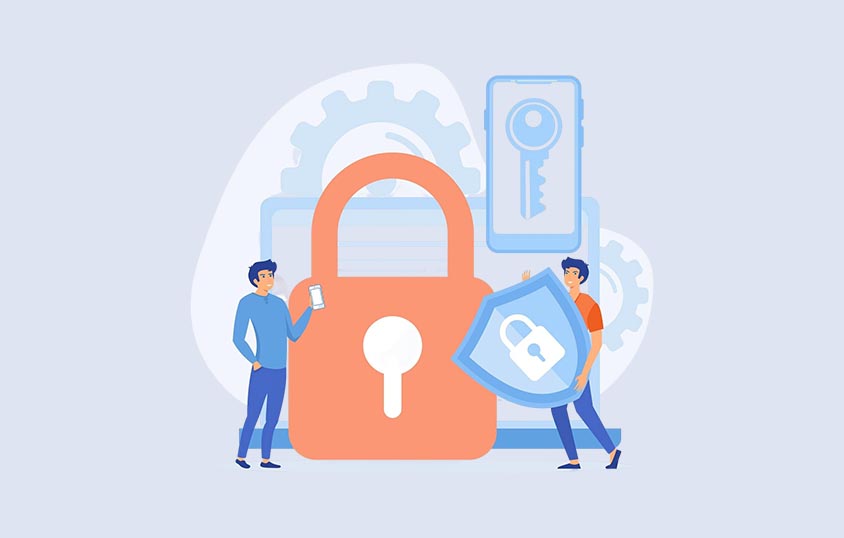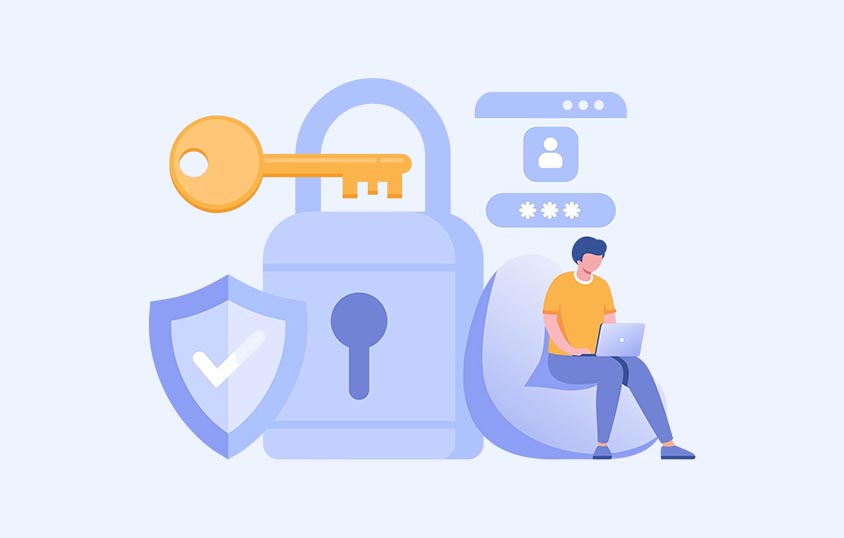Content
Recent Posts
Best Enterprise Password Managers

Passwords are a major security risk for any company. Employees handle dozens of logins, and weak or reused credentials open the door to breaches. Good password hygiene and the use of a strong master password are essential, but they can be difficult to maintain without help. A strong business password manager protects your data, simplifies administration, and keeps teams productive.
In this guide, you’ll learn what enterprise password managers are, why your business needs one, and how three leading providers—1Password Business, Keeper Security Business, and LastPass Enterprise—compare. You’ll also find details on their enterprise features, pricing, and key differences, along with practical tips to help you choose the best option for your organization.
Content
What Is an Enterprise Password Manager?
An enterprise password manager is more than a secure password vault. It stores and encrypts credentials while adding advanced tools that help large organizations manage access securely and efficiently. These include:
- User roles that let administrators assign permissions based on a person’s job responsibilities. Employees only see the passwords and accounts they need, which reduces the risk of exposing sensitive information
- Centralized administration and audit logs that give IT teams a single dashboard to add or remove team members, enforce password policies, and track every change or login attempt for compliance and security reviews
- Integration with identity providers for single sign-on (SSO) so employees can use one set of credentials to access multiple services. This simplifies the login process, improves password security, cuts down on password fatigue, and strengthens overall access management practices
- Secure password sharing across departments or project groups to collaborate without emailing or messaging passwords. Encrypted vaults ensure that only authorized users can view or update shared entries
- Monitoring for breaches and password health that automatically checks whether stored credentials have appeared in known data breaches, flags weak or reused passwords, and provides actionable recommendations to strengthen security
These tools combine advanced features, strong encryption, and ease of use, making it easier to protect accounts across hundreds or thousands of employees.

Why You Need One
Human error keeps driving account compromise. Employees create weak or reused passwords, adopt tools outside IT’s oversight, and accounts can linger after contractors or staff leave. A business-grade solution with strong enterprise password management capabilities enforces stronger authentication practices, centralizes control, and produces audit trails. Research highlights that credential misuse remains a leading breach pathway, which is exactly the risk these tools are built to reduce.
Centralized management, policy enforcement, and automated resets can also improve operations by lowering service-desk requests when implemented effectively, although the results depend on how well the rollout is planned and executed.
When evaluating a password management software option for enterprise use, it's essential to look for security certifications such as SOC 2 Type II, ISO 27001, and, in some industries, FedRAMP or HIPAA compliance. These certifications demonstrate that the password manager meets industry security, data protection, and risk management standards, which are essential for protecting sensitive organizational credentials.
1Password Business
Key features
1Password Business uses a zero-knowledge design. Decryption happens on user devices, protected by your account password plus a unique Secret Key that is combined during encryption. Admin tools include vault and permission management, activity reporting, policy controls, and integrations for SSO and SCIM provisioning. Their browser extension works with major web browsers to fill and save credentials securely.
Pricing
1Password’s own materials describe Business at about $8 per user per month with annual billing; larger deployments can engage sales for enterprise terms. Always confirm current quotes because vendors update pricing. A free trial is available so you can test its advanced features within your own tech stack before purchase.
Why choose them
If you want strong client-side encryption plus a polished user experience and straightforward SSO/SCIM onboarding, this provider is a solid fit.

Keeper Security Business
Key features
Keeper describes a zero-knowledge model with record-level encryption. Keys are generated on the client device, and each stored record is encrypted individually. Enterprises can enforce policies, manage sharing, and integrate reporting with downstream tools like SIEM; privileged access management and secrets capabilities are available as add-ons. Keeper offers a Secrets Manager service that securely stores and manages API keys, database credentials, and other development secrets, giving developers a protected way to handle these sensitive assets.
Pricing
Keeper’s business pricing is user-based and billed annually. Exact per-user figures vary by tier and quote; confirm current rates on the vendor’s pricing page or with sales.
Why choose them
If you want fine-grained, client-side encryption with modular add-ons for advanced use cases at competitive enterprise pricing, this platform is worth shortlisting.
LastPass Enterprise
Key features
LastPass states that vault data is encrypted locally with AES-256 before it syncs. Business features include policy enforcement, detailed logging, directory sync with providers like Active Directory and Azure AD, and SSO. The platform also offers secure sharing, work-versus-personal vault separation, authenticator app integration, cloud storage for encrypted files, password-health checks, and dark web monitoring.
Pricing
LastPass lists $7 per user per month for Business, billed annually, with an option to negotiate a site license for enterprise coverage. Verify any add-on costs with sales, since packaging can change.
Why choose them
Organizations that rely on SSO or directory services may find LastPass attractive because of its broad integration support and mature admin console.
Comparing the Three
- Security model: All three use strong client-side encryption designs. 1Password’s additional Secret Key is a distinctive layer, and Keeper’s record-level encryption provides granular protection at the item level
- Admin tools: Each offers centralized policy and auditing. Keeper documents SIEM-friendly audit trails and optional privileged-access modules; 1Password and LastPass emphasize mature admin consoles and provisioning
- Integrations: All integrate with major IdPs. LastPass markets extensive directory sync and SSO coverage; 1Password and Keeper support SSO and SCIM in enterprise tiers
- Pricing posture: Keeper positions itself with flexible user-based pricing for business and enterprise. 1Password communicates about $8/user/month for Business; LastPass lists $7/user/month for Business. Always verify quotes and tiers during procurement
Your choice should match your budget, security requirements, identity systems, and admin needs. DBIR data shows credentials are a prime attack vector, so weigh password-health tooling, breach monitoring, and provisioning depth as part of the evaluation.

Final Thoughts
A password manager is more than a vault. It is a control center for managing access, enforcing policies, and protecting sensitive data. Whether you prefer the polished experience of 1Password, the cost efficiency of Keeper, or the integration depth of LastPass, investing in one of these tools reduces risk and simplifies daily operations. For a broader look at what’s available, explore our full reviews in the password managers category, use our comparison tool to view top choices side by side, and browse our educational articles for deeper insights into features and pricing.
Frequently Asked Questions
Can you migrate from one platform to another?
Yes. All three vendors provide import paths for common vault formats. Test with a pilot group before full rollout to validate fields, sharing, and SSO mapping.
Is it challenging to implement an enterprise password manager across a large team?
Implementation can be challenging if your team is large, as it requires careful planning, training, and coordination. However, most enterprise password manager vendors offer onboarding resources, customer support, and user guides to help streamline deployment for large teams and minimize disruptions.
Do these tools help with compliance?
They provide encryption, policy controls, auditing, and integration hooks that support frameworks. You still need sound processes. Use guidance like NIST SP 800-63B-4 to shape authentication policies, including password length and composition.
Is self-hosting available?
These three options focus on cloud delivery for business plans. If you require a self-hosted deployment, evaluate alternatives that explicitly offer it.
